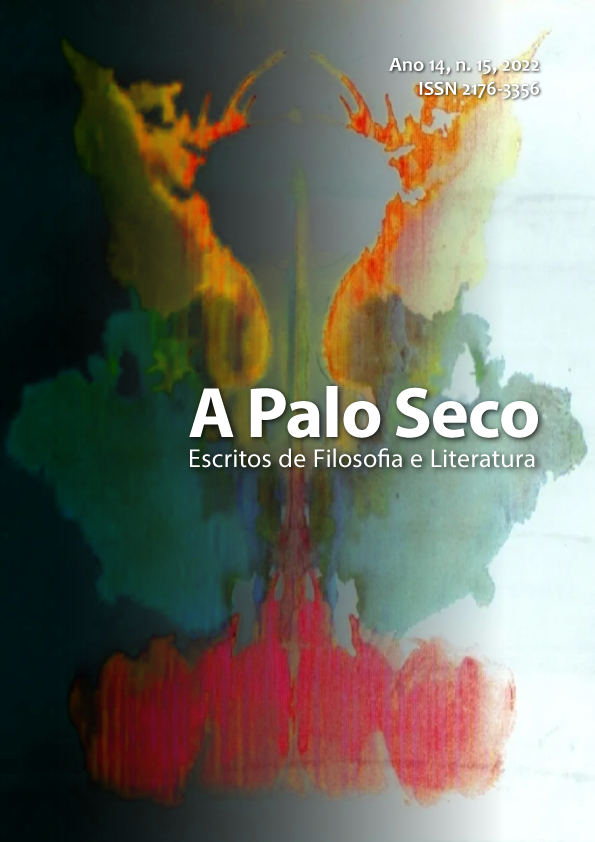A linguagem, o pensamento e a percepção do mundo empírico: David Hume e Flush de Virginia Woolf
Keywords:
David Hume, Virginia Woolf, Literature, CausalityAbstract
This work is based on David Hume’s theory of knowledge and intends to investigate its affinities and similarities to Virginia Woolf’s novel Flush. The novel tells the life story of the poet Elizabeth Barrett through her dog’s point of view, exploring the animal’s feelings and behaviors, as well as its condition as a being that does not belong to the world of human language. It will be possible to draw parallels between Hume’s epistemology and Woolf’s work regarding the principles of causality and uniformity in nature, shared by humans and animals. Finally, the article raises questions concerning the limits of language, and the power that language itself might have to impose limits on human experience.
References
HUME, David. Tratado da Natureza Humana. Trad. de Déborah Danowski, 2ª ed. São Paulo: Editora UNESP, 2009.
HUME, David. Ensaios Morais, Políticos e Literários. Trad. de Luciano Trigo. Rio de Janeiro: Ed. Topbooks, 2004.
WOOLF, Virginia. Flush: Memórias de um Cão. Trad. de Ana Ban. L&PM Pocket Editores, 2004.
GARRETT, Don. The Literary Arts in Hume’s Science of the Fancy. Kriterion. Belo Horizonte, nº 108, , p. 161-179. Dez/2003.
Published
How to Cite
Issue
Section
License
O/A autor/a deverá concordar com os termos da Declaração de Direitos Autorais, no qual cede à revista A Palo Seco – Escritos de Filosofia e Literatura como detentora dos direitos autorais da publicação.
1. As opiniões expressas nos textos submetidos à revista A Palo Seco – Escritos de Filosofia e Literatura são de responsabilidade do/a autor/a.
2. Autores/as conservam os direitos de autor/a e concedem à revista o direito de primeira publicação, com o trabalho simultaneamente licenciado sob a Licença Creative Commons Attribution que permite a partilha do trabalho com reconhecimento da autoria e publicação inicial nesta revista.
3. O/A autor/a comprometem-se a seguir as “Normas para submissão de manuscritos”, na plataforma SEER.
4. Compete aos/às autores/as aceitar as sugestões de alterações na submissão, quando encaminhadas por sugestão dos/as avaliadores/as, Revisores/as Científicos e/ou da Comissão Executiva. Sempre que houver alterações de que os/as autores/as discordem, devem ser apresentadas as respectivas justificações, se for o caso.
5. A reprodução de material sujeito a direitos de autor/a foi antecipadamente autorizada.
6. Os textos são originais, não publicados nem submetidos a outras revistas.
Licença Creative Commons CC BY-SA (Atribuição - Compartilha Igual) 4.0 Internacional.








